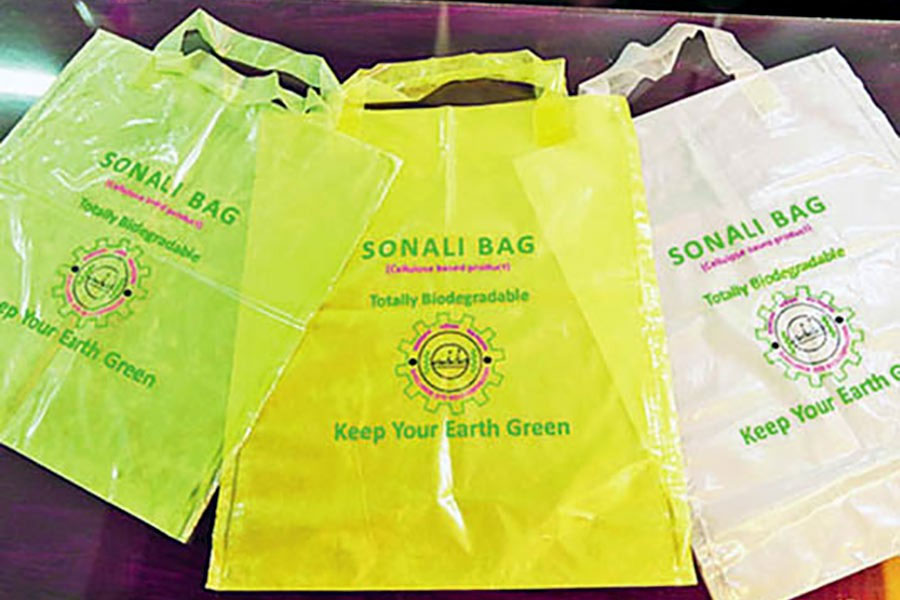
Published :
Updated :

Environment, forest and climate change adviser to the government has instructed the city's super shops not to use polythene bags but arrange for the biodegradable and environmentally friendly alternative. The environment advisor is well known nationally and internationally for her environmental activism and the declaration by the interim government to eliminate the use of plastic bottles in government offices is perhaps the first step in moving towards a more environmental-friendly policy stance.
A laudable initiative, but there are many hurdles on the way! In 2002, the government led by the BNP had actually banned polythene bags without taking any major steps to stop production of polythene and plastic goods in the country. While this threw the supply chain of polythene packaging in disarray for a while, people started adapting to the new status quo by going back to jute bags.
That ban didn't have the desired impact because no real enforcement by the environment officials, no clear-cut directives issued on how to deal with errant traders and buyers of polythene packaging material, including shopping bags were there. All this was compounded by the illegal production and distribution of poly bags, simply because jute bags available back then were considered unsuitable for modern shopping needs. Hence, that initiative failed.
Some developments have taken place since those early days. Dr, Mubarak Ahmed Khan, A Bangladeshi scientist has discovered the secret of unlocking a biodegradable substitute to harmful plastic. Back in 2017, he had developed a polymer made from jute fibre rocking the hugely powerful plastic sector which is closely connected to the world of petrochemicals. While his discovery garnered global public attention as it had opened up the possibility of replacing one of the most environmentally-damaging materials the world uses today to carry and package goods, mass production of the 'Sonali bag' has remained a distant dream.
There should be no confusion as to why nothing has happened. Leaving aside geopolitics and the massive sway the plastic industry holds over government decision-making in any country, there is a question of its viability in the face of well-entrenched business interests. Merely expressing the wish to promote this biodegradable material as the building block of an entirely new industry that will replace an old one that provides thousands of crores of Taka in VAT contribution to the national exchequer isn't going to get much traction. The plastic industry goes beyond simply providing VAT revenue to the government, it employs hundreds of thousands of people at various stages of production and distribution and allows for durable packaging to all sorts of goods across various sectors of the economy.
That said, there is no reason why Sonali bag cannot be made viable. The initial investment of about Tk100 crore, if invested into a project as working capital for the production of this bag, will enable the Bangladesh Jute Mills Corporation to reach government's production targets set for consumption. Dr. Mobarak has stated that given the present machinery and introduction of certain new technology, national goals for replacing plastic poly bags is reachable. What is required is not just political will, but putting into place a regime of practices for effective enforcement of any directive that will involve supplanting either plastic polythene or single use plastics in the economy. That is something the government has to think deeply over prior to taking on the power plastic lobby. Lastly, if Sonali bag can be made viable in Bangladesh, there are huge possibilities for products made of jute fibre in the export market. It is the government that must come up with requisite finance for taking this groundbreaking initiative forward. Only the state has the power to effect change at the policy level.


 For all latest news, follow The Financial Express Google News channel.
For all latest news, follow The Financial Express Google News channel.